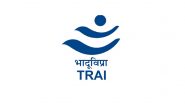Islamabad, March 26: The Islamabad High Court on Tuesday directed the state to take over the custody of two girls and ensure their safety on a petition by the sisters claiming that the story of their forcible conversion from Hinduism to Islam was "fabricated.
"According to Dawn, the petition was filed by the girls and their alleged spouses Safdar Ali and Barkat Ali who sought protection from adverse action. The plea said the two sisters left their home on March 20 and sought legal help on March 22, after announcing that they had willingly converted. Sushma Swaraj Asks Pakistan to Return Abducted Hindu Girls to Family.
According to the petition, the girls were born in a Hindu family and had converted to Islam as they were impressed by Islamic teachings. It also claimed that they did not inform their family citing threats to their lives.
They claimed that Pakistan Tehreek-e-Insaf (PTI) members of the National Assembly (MNA) Ramesh Kumar Vankwani and Hari Lal from the Hindu Council had fabricated the story about their forceful conversion.
After hearing the petition, Islamabad High Court Chief Justice Athar Minallah ordered the determination of the girls' age and directed that security be provided to them to ensure safety. On Monday, police had arrested at least seven people, including a 'nikah khwan' (marriage officiator), allegedly involved in the case.
Both the girls and their alleged spouses were present during the hearing. Several people including representatives of the federal government, Islamabad administration and Sindh police, besides the Director General, Human Rights, were also present in the court.
Judge Minallah remarked, "This is an extremely sensitive issue, Pakistan's respect is joined to it. Ensuring the rights of minorities is our responsibility.""I have heard the prime minister has ordered a fair and transparent inquiry into the matter, and that Shireen Mazari (Pakistan's Federal Minister for Human Rights) is also looking into it," he said."Even if the girls are placed in a shelter home, the federal government must ensure their protection. A district and sessions judge will be appointed a guardian in this case," the judge said.
Justice Minallah also ordered that an SP-rank female police officer should be appointed on duty with the sisters to ensure their safety. Following the hearing, the two sisters were transported to a shelter home. Their alleged spouses also submitted a request for protective bail to the court through their lawyer.
The plea stated that both had been named in the FIR and their arrest should be stopped. The hearing in the case was adjourned until April 2. The incident came to light after the girls' father and brother revealed the details in videos that went viral on social media. In a separate video, however, the girls claimed that they accepted Islam out of their own free will.
External Affairs Minister Sushma Swaraj on Tuesday asked Pakistan to return to the family two minor Hindu girls who were abducted, forcefully converted to Islam and married off on the eve of Holi in Sindh province."Forced conversion of Hindu girls in Pakistan: The age of the girls is not disputed. Raveena is only 13 and Reena is 15 years old. Even the Prime Minister on Naya Pakistan will not believe that girls of this tender age can voluntarily decide about their conversion to another religion and marriage," Swaraj tweeted referring to Pakistan Prime Minister Imran Khan's 'Naya Pakistan'."Justice demands that both these girls should be restored to their family immediately," she added.
The Pakistan Prime Minister had on Sunday directed that an "immediate" probe be conducted in the case. On the same day, India had shared its concerns through an official note to the Pakistan Foreign Office over the incident. India sought suitable remedial action by the Pakistan government to protect and promote safety, security, and welfare of its own citizens, especially from the minority communities. Pakistan human rights activists have claimed that this is another case of forced conversion and abduction, which are becoming increasingly common in the southern region of Sindh.













 Quickly
Quickly





















